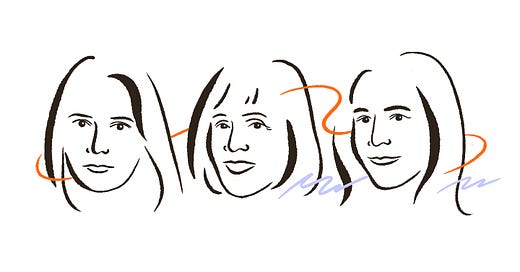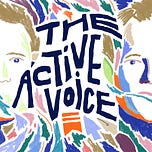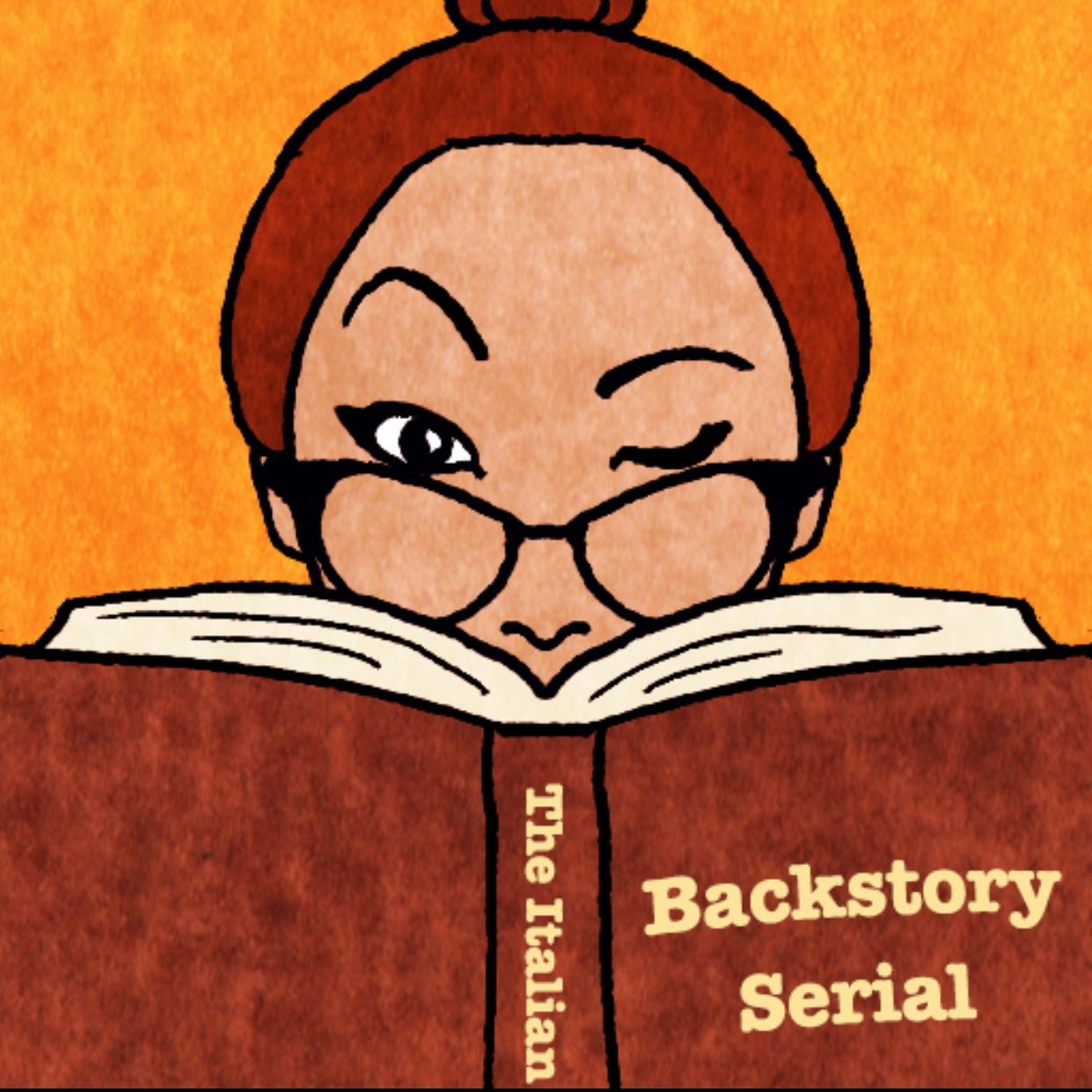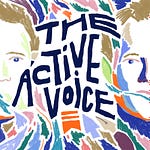Today’s episode is guest-hosted by Sarah Fay, creative writing professor at Northwestern University, former interviewer at The Paris Review, devoted serializer, and lover of all things Substack. Her Substack
helps creative writers use Substack to bolster their careers, including how to serialize their writing. She’s currently serializing her new memoir on Substack through 2023.—
, Head of Writer RelationsYou may recognize the names of today’s guests:
, , and . Their new venture is a groundbreaking Substack: . The content may surprise you—though it shouldn’t, and I’ll explain why during the podcast. Backstory Serial features their romance novel The Italian Lesson, which is bringing serial novels and Substack fiction into the mainstream.The Italian Lesson is a serialization, meaning it appears in your inbox, chapter by chapter, installment by installment. The plot of The Italian Lesson is simple: An American woman moves to a small town in Tuscany and opens a café. Then, as Mary put it in an interview, “some stud walks in and turns out he’s a prince.”
Serialization has a long tradition on Substack—I guide writers on how to do it on my Substack, Writers at Work—but no one has had the success that these three have and there are very good reasons why, which we’ll go into.
The three women play different roles in the writing of the novel: Mary is the author, E. Jean fields comments from their vibrant community and plays the role of romance-novel fact-checker, and Jen acts as editor.
In case you don’t know Mary, E. Jean, and Jen, a bit of background:
Mary Trump describes herself as a mom, writer, liberal progressive, and pro-democracy American. She’s the author of Too Much is Never Enough about her uncle (yes, that Donald Trump) and The Reckoning. Her Substack
features her commentary on culture, politics, and music (from Tina Turner to Aimee Mann)—plus pet pictures and a community of subscribers who share her vision to use kindness and empathy to ensure that America remains a democracy.E. Jean Carroll’s esteemed Substack,
, is the longest-running advice column in American publishing. It ran in Elle Magazine until E. Jean accused Donald Trump of assault and sued him for defamation, after which Elle fired her. She’s since made Substack her home. Her wit, smarts, sass, and empathy are unrivaled. She’s also the author of the book What Do We Need Men For?—part satirical treatise in the tradition of Jonathan Swift and part rollicking narrative.Jennifer Traub is a one-woman force against corruption in the United States. In her book, Big Dirty Money, she takes on white-collar criminals. She’s also the author of Other People’s Houses. Jen is a law professor, an activist, and the host of the Booked Up podcast. In her firey—and also fun—Substack
, she clarifies what the rest of us miss or don’t make sense of in the financial and legal world.In our conversation, we talk about everything from why the media has underestimated them as novelists, how they came up with The Italian Lesson’s unique form, why they chose to serialize on Substack, knitting patterns, cocktail recipes, the email novel, and what love really is.
—
Quotes from the conversation
On writing a romance novel
Mary: Three years ago, if somebody had told me my first two books were going to be nonfiction, I would’ve laughed. And now, five months ago, six months ago, if somebody said, “Your first novel is going to be a romance novel,” I probably would’ve fainted with horror.
Jen: We kept just texting back and forth new ideas and it was so fun as we embellished this hypothetical Hallmark movie story.
Jen on collaborating
I’m a sounding board, and then, Mary will give me something that’s excellent and I’ll maybe go, she’ll give me a segment and say, “Should it end here?” Or, “This sentence is clunky. Can you help?” The kind of way you would with an editor or friend.
Mary on writing a serialized novel
Fiction is an entirely different animal and it just comes incredibly naturally to me because story has always been so important. I knew the serialization aspect of it would be a challenge because I’m not a short story writer. I always like to write longer things. So the idea of having installments that are between 1,000 and 2,000 words that need to tie together seemed a little daunting, but it is just falling into place. And it’s also not the kind of thing one could have learned
Jen on instinct
The hardest thing I think, for any kind of narrative writing, is pace. And Mary’s really good at making sure she keeps the pace going, and then later going back and saying, “Okay,” or putting it like a pin, saying, “I know a little description, but not too much.” Or when we’re expanding a section or she decides, you know what? I want to make another section of this chapter, she knows how to break in either to a flashback or a move the story along or a fill in, but that will not change that pace.
E. Jean on community
Our community started introducing themselves to each other, telling details about their lives, their marriages, their children, what they loved about romance novels, what they didn’t like and how their own lives ... It was thrilling to see how quickly this community has wrapped its arms around us.
Mary on delivering chapters
The ability to lose oneself in that world is one of the great human experiences. But also, we are living in incredibly challenging times. There are a lot of distractions. We can’t publish two chapters at a time. That’s not tenable. I think it is important to space it out.
Mary on epistolary novels
I think I’ve read Clarissa probably 12 times or more. I’ve lost count. And as you know, it’s quite a challenge because it's about 2,000 pages long, but Richardson creates this just stunningly elaborate, intimate world with very few characters, honestly. And it’s the immediacy of the letter writing, which is a sadly lost art, that does that. And I wrote my undergraduate thesis on Clarissa, so I didn’t just read it, I studied it, and clearly, it sunk in.
Jen on collaborating together
For me, that kind of adventure is something I do on my own. And this has been incredible because it’s taught me that it actually is fun to collaborate. Or maybe it’s only fun to collaborate with Mary and E Jean. Maybe everyone else would be awful.
E. Jean on romance
We’re not going to have the next generation of the human race unless people fall in love and have babies, so we really are writing about the most important thing, not to exaggerate, but the future of civilization depends on us to write this romance. That is, if we can beat AI.
E. Jean on non-traditional publishing
A lot of people in the publishing world are watching what we’re doing. We’re hearing from agents and editors, and people are interested. They want us to succeed. And some people in publishing don’t want to succeed.
Mary on publishers
I think people would think, and mistakenly, that this would cannibalize other sales. I think it whets the appetite for future sales. That's what publishers need to think.
Mary on the life cycle of a Substack novel
It’s more of an investment to become a Substack subscriber, which is why I think it is important to give them the extras and to make the community such a big part of it. People who read the physical book won't get any of that. And just by the same token, there’s a much larger audience for movies than for books. So just because a book is a bestseller, if it's made into a movie, that's millions of people who never read the book or never even heard of it. It’s these concentric ever widening circles of potential readers.
Show notes
Subscribe to Backstory Serial on Substack
Find Mary Trump, Jen Taub, and E. Jean Carroll on Twitter, and Mary, Jen and E. Jean on Instagram, and listen to Jen’s podcast Booked Up with Jen Taub
[03:31] Writing a romance novel
[05:19] Meeting on Zoom
[07:58] Choosing to serialize
[13:20] Mary’s introduction to writing
[16:32] Building a community
[22:00] Bringing the book to life
[27:27] Collaborating together
[32:30] Subverting traditional publishing
[38:49] Ideas for the next novel
The Active Voice is a podcast hosted by Hamish McKenzie, featuring weekly conversations with writers about how the internet is affecting the way they live and write. It is produced by Hamish McKenzie, with audio engineering by Seven Morris, and content production by Hannah Ray. All artwork is by Joro Chen, and music is by Phelps & Munro.






















Share this post